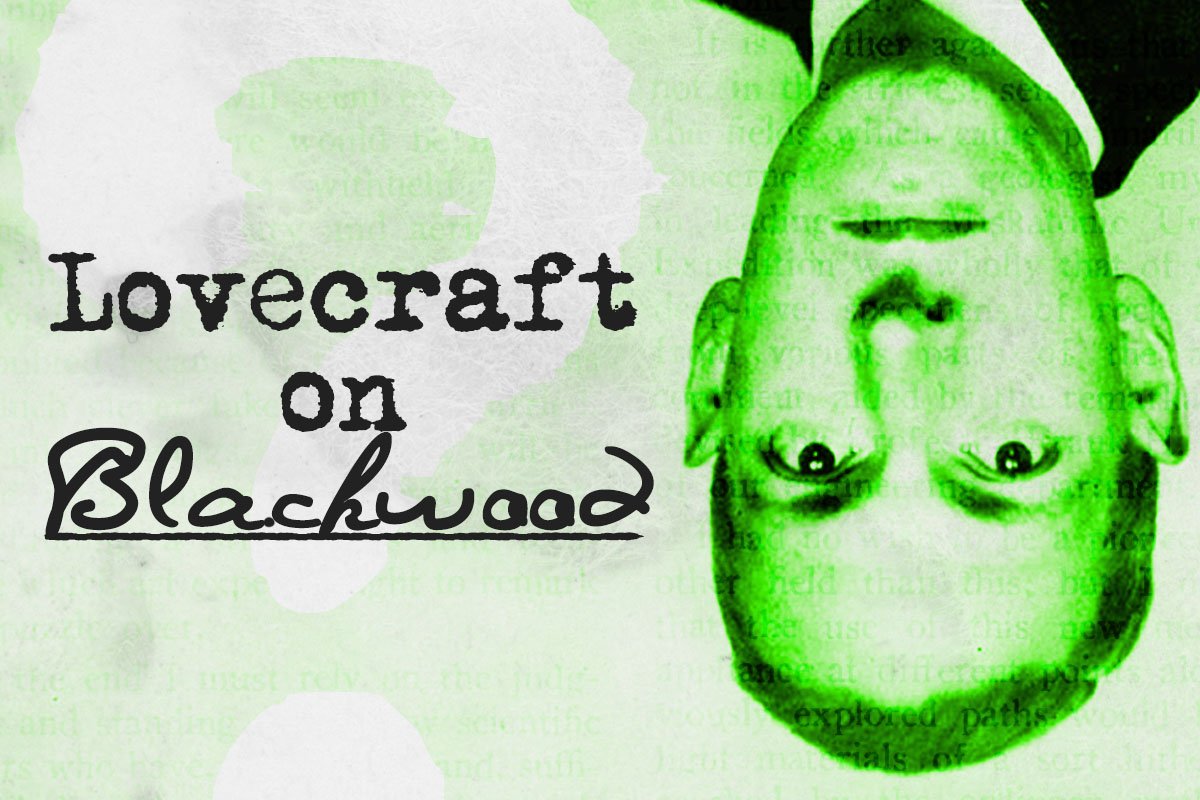No products in the cart.

Lovecraft on Blackwood
- Writers on Writers
- 4 Minute Read
Less intense than Mr. Machen in delineating the extremes of stark fear, yet infinitely more closely wedded to the idea of an unreal world constantly pressing upon ours, is the inspired and prolific Algernon Blackwood, amidst whose voluminous and uneven work may be found some of the finest spectral literature of this or any age. Of the quality of Mr. Blackwood’s genius there can be no dispute; for no one has even approached the skill, seriousness, and minute fidelity with which he records the overtones of strangeness in ordinary things and experiences, or the preternatural insight with which he builds up detail by detail the complete sensations and perceptions leading from reality into supernormal life or vision. Without notable command of the poetic witchery of mere words, he is the one absolute and unquestioned master of weird atmosphere; and can evoke what amounts almost to a story from a simple fragment of humourless psychological description. Above all others he understands how fully some sensitive minds dwell forever on the borderland of dream, and how relatively slight is the distinction betwixt those images formed from actual objects and those excited by the play of the imagination.
Mr. Blackwood’s lesser work is marred by several defects such as ethical didacticism, occasional insipid whimsicality, the flatness of benignant supernaturalism, and a too free use of the trade jargon of modern “occultism”. A fault of his more serious efforts is that diffuseness and long-windedness which results from an excessively elaborate attempt, under the handicap of a somewhat bald and journalistic style devoid of intrinsic magic, colour, and vitality, to visualise precise sensations and nuances of uncanny suggestion. But in spite of all this, the major products of Mr. Blackwood attain a genuinely classic level, and evoke as does nothing else in literature an awed and convinced sense of the immanence of strange spiritual spheres or entities.
The well-nigh endless array of Mr. Blackwood’s fiction includes both novels and shorter tales, the latter sometimes independent and sometimes arrayed in series. Foremost of all must be reckoned “The Willows”, in which the nameless presences on a desolate Danube island are horribly felt and recognised by a pair of idle voyagers. Here art and restraint in narrative reach their very highest development, and an impression of lasting poignancy is produced without a single strained passage or a single false note. Another amazingly potent though less artistically finished tale is “The Wendigo”, where we are confronted by horrible evidences of a vast forest daemon about which North Woods lumbermen whisper at evening. The manner in which certain footprints tell certain unbelievable things is really a marked triumph in craftsmanship. In “An Episode in a Lodging House” we behold frightful presences summoned out of black space by a sorcerer, and “The Listener” tells of the awful psychic residuum creeping about an old house where a leper died. In the volume titled Incredible Adventures occur some of the finest tales which the author has yet produced, leading the fancy to wild rites on nocturnal hills, to secret and terrible aspects lurking behind stolid scenes, and to unimaginable vaults of mystery below the sands and pyramids of Egypt; all with a serious finesse and delicacy that convince where a cruder or lighter treatment would merely amuse. Some of these accounts are hardly stories at all, but rather studies in elusive impressions and half-remembered snatches of dream. Plot is everywhere negligible, and atmosphere reigns untrammelled.
John Silence—Physician Extraordinary is a book of five related tales, through which a single character runs his triumphant course. Marred only by traces of the popular and conventional detective-story atmosphere—for Dr. Silence is one of those benevolent geniuses who employ their remarkable powers to aid worthy fellow-men in difficulty—these narratives contain some of the author’s best work, and produce an illusion at once emphatic and lasting. The opening tale, “A Psychical Invasion”, relates what befell a sensitive author in a house once the scene of dark deeds, and how a legion of fiends was exorcised. “Ancient Sorceries”, perhaps the finest tale in the book, gives an almost hypnotically vivid account of an old French town where once the unholy Sabbath was kept by all the people in the form of cats. In “The Nemesis of Fire” a hideous elemental is evoked by new-spilt blood, whilst “Secret Worship” tells of a German school where Satanism held sway, and where long afterward an evil aura remained. “The Camp of the Dog” is a werewolf tale, but is weakened by moralisation and professional “occultism”.
Too subtle, perhaps, for definite classification as horror-tales, yet possibly more truly artistic in an absolute sense, are such delicate phantasies as Jimbo or The Centaur. Mr. Blackwood achieves in these novels a close and palpitant approach to the inmost substance of dream, and works enormous havock with the conventional barriers between reality and imagination.
The Heathen Newsletter
Want to be kept in the loop about new Heathen Editions, receive discounts and random cat photos, and unwillingly partake in other tomfoolery? Subscribe to our newsletter! We promise we won’t harass you – much. Also, we require your first name so that we can personalize your emails. ❤️
@heatheneditions #heathenedition
Copyright © 2026 Heathen Creative, LLC. All rights reserved.
